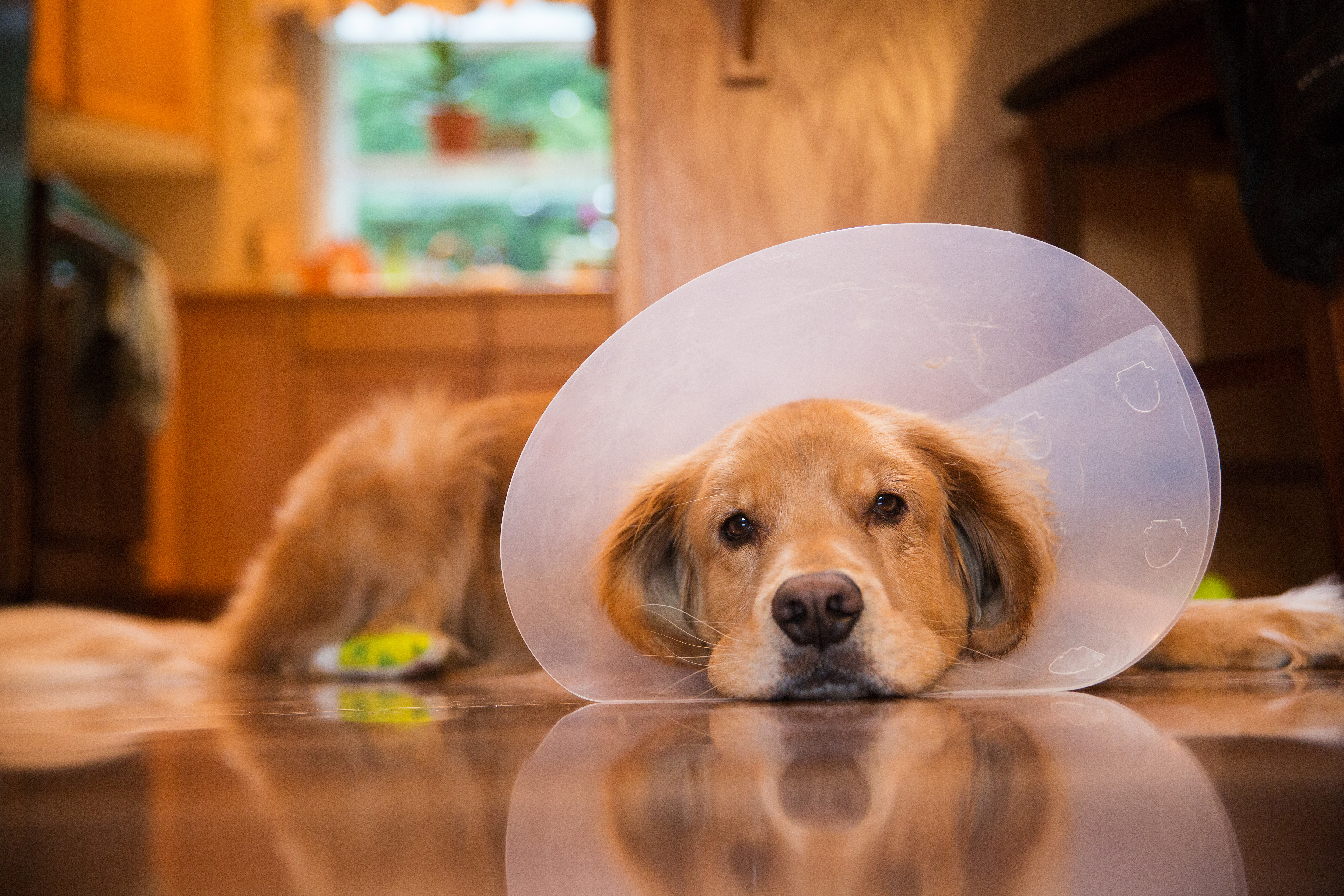What is TPLO Surgery?
TPLO (Tibial Plateau Leveling Osteotomy) surgery is a common orthopedic surgery used to treat dogs with a torn cranial cruciate ligament (the CCL is similar to the ACL in people).
It is an extremely effective long-term solution to help a dog recover from this injury and proven popular due to its results and quick recovery time.
As a result of the surgery, the dynamics of the dog's knee will change so the torn ligament isn't required. Since a dog's knee is always bent at about 110 degrees, it's always taking on tension or load — which leaves it vulnerable to injury (no wonder this is the most common orthopedic injury in dogs).

For a dog, a torn CCL is extremely painful as the femur will rub against the back of the tibia, leading to discomfort and inflammation. Your dog will likely be very reluctant to place any weight on the injured leg. A veterinarian may be able to diagnose the injury and refer you to a specialist if required for surgery.
Procedure
During TPLO surgery, the bone is cut so the tibial plateau can be rotated where the tibia and femur work together. A portion of the tibia will be removed and repositioned, and the femur will no longer be able to slide backward. Most importantly, the knee will be stabilized. The CCL ligament is no longer required and the joint is stable once again.
This is a list of factors to think about when considering TPLO surgery. Consider your dog's:
- Weight and size
- Age
- Activity level (Extremely active? Calm? In between?)
- Health (does she have any joint diseases?)
- After-surgery care
Recovering from TPLO Surgery: What to Do and What to Avoid
While very dog is different, the first 12 weeks after surgery are a critical period, as full recovery may take anywhere from 8 weeks to 6 months. Your dog's size, age and breed may impact recovery time. While the bone graft will be secured with a plate and screws, it still requires post-surgical healing time. During this time, you should:
- Give the anesthesia time to wear off
- Keep surgical areas clean, covered and protected from infection
- Restrict physical activity to give bones time to heal but follow any recommended exercise routines
Keep in mind that avoiding infection and restricting physical activity during the recovery period are essential. Since dogs tend to heal quickly and crave physical activity, he could be up and raring to go before his body is physically ready. While walking for a few minutes at a time on-leash is advisable, avoid high-intensity activities such as running, jumping, playing with other dogs and even steep stairs.
Though you can likely leave your dog unattended during the day to go to work or school, he will still need potty breaks and exercise to avoid stiffness. By week 8, if all is well, the stitches should be ready to come out.
Potential Complications and What to Do
Though recovery from TPLO surgery is typically complication-free, you’ll want to call your veterinarian at the first sign of any of these symptoms:
- Infection or inflammation at incision site
- Refusal to put weight on recovering leg
- Diarrhea or vomiting
- Widely varying drinking and eating habits
- Missing staples
- Sensitivity to pain medications
- Constipation due to change in activity, healing or medication
If any of these signs appear, your veterinarian is a valuable resource - they may be able to diagnose the issue and recommend a solution.
Also remember that similar to people who are recovering from any procedure, dogs need activity, too. He’ll appreciate a few new toys and your doting attention as he recovers.
Note: The advice provided in this post is intended for informational purposes and does not constitute medical advice regarding pets. For an accurate diagnosis of your pet's condition, please make an appointment with your vet.
